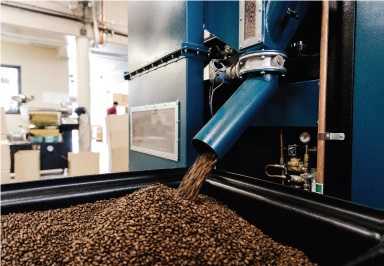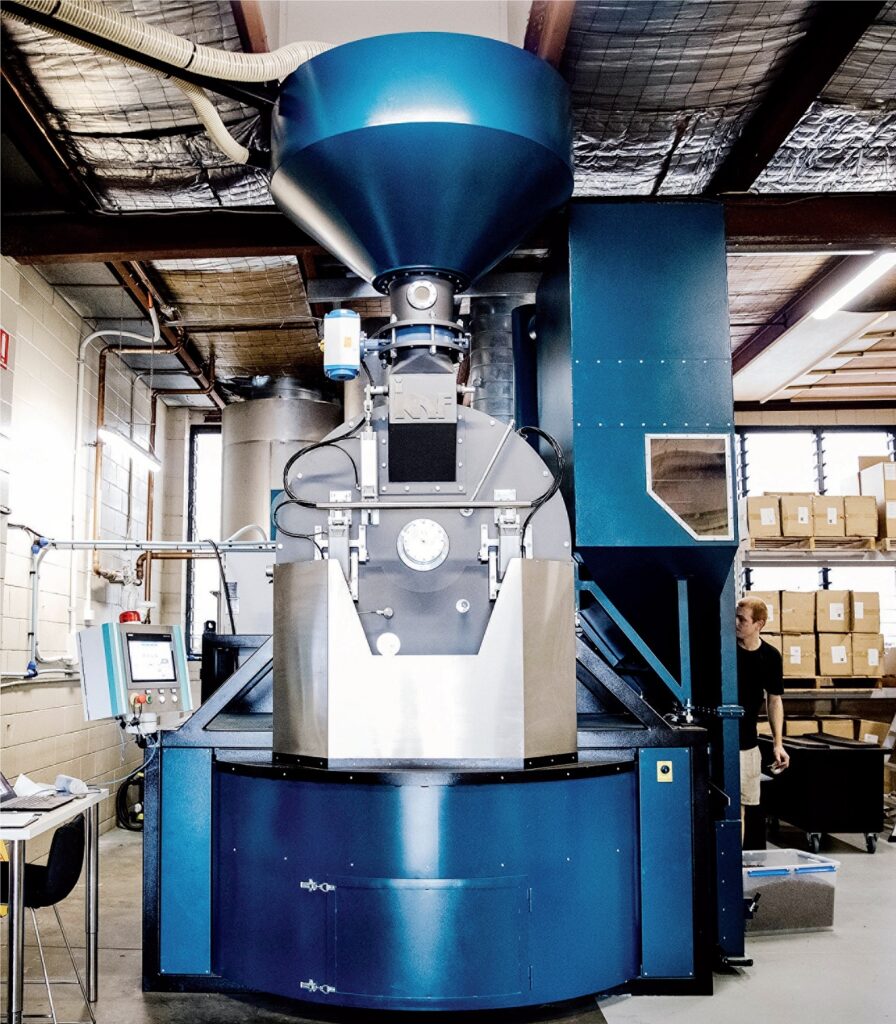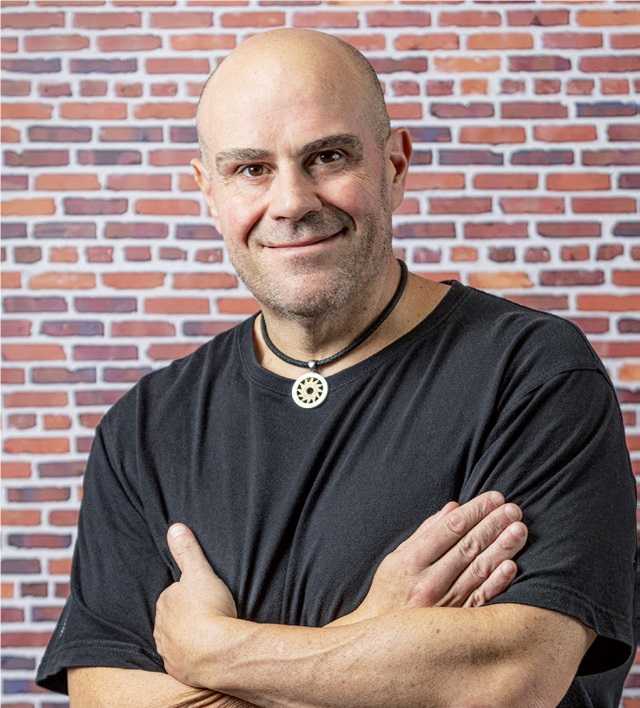BOWEN HILLS, Queensland, Australia – The first question Phillip Di Bella asks when he starts his day, is “how can I help?” The Founder and Managing Director of The Coffee Commune in Bowen Hills, Queensland, says for him, success is measured by how many people he can help accelerate their potential. “My whole brand promise and purpose is to see people grow and get them from where they are, to where they want to be,” Phillip says. “So, each day I ask myself: how can I help a coffee enthusiast, barista, café owner, roaster, or supplier?”
With the impetus to help grow more businesses, Phillip launched The Coffee Commune in March 2021. The 2000-square-metre facility is worth an estimated $20 million, including a green bean warehouse, shared roasting facility, and packaging machines, with the mission to help coffee businesses become more efficient, profitable, and sustainable.
Since its opening, The Coffee Commune has gained 95 members and welcomed seven start-up businesses. Phillip says because The Coffee Commune is a welcome facility to all its members, and not a rival coffee brand, there is no threat of competition. As such, customers are discovering the shared facility as a means to kick-start their business without rent or infrastructure costs or work more economically in this post-COVID world.
“COVID had a definite impact on business structures. Everyone is now looking at how they can be more efficient. Some customers know exactly what they want to produce, so they come in, put their blends together, and go,” Phillip says.
“The benefit is that the roaster gets to spend more time with their customers, which is huge. The ability to differentiate through your product is now limited. The focus has gone back to relationships.”
As a result of demand, Phillip has ordered a 240-kilogram IMF roaster in addition to the one 240-kilogram roaster he had already bought through IMF Australasian agent Roastquip.
To give an example of scale, Phillip says one product produced in The Coffee Commune was released in more than 700 venues during April. “This is a model we can replicate. We could potentially have about 100 roasters working out of here,” Phillip says. “The Coffee Commune is not just a contract roasting facility. You don’t have to buy your green beans from here, you can just be a member and bring your own green beans, roast and pack yourself, or we can do it for you. Everything is bespoke and priced accordingly to maximise each business.”

roasters use only one burner chamber
Members can access The Coffee Commune’s variety of roasters, ranging from one-kilogram all the way to IMF’s 240-kilogram roasters.
“Ninety per cent of roasters in Australia roast less than one tonne per week, and roast on a seven-to-15-kilogram machine, so they’re spending four to five days roasting coffee. What that means, is that if they come here to The Coffee Commune, they can roast that same volume in one hour – either by themselves or with our assistance,” Phillip says.
Phillip learned to roast coffee as a 17-year-old using Petroncini equipment. As young roaster, Phillip was lucky enough to meet Petroncini sales engineer Dr Roberto Zanetti, and years later again, when Phillip was researching new roasting equipment. While visiting the biannual Host Milan expo in Italy, Phillip ran into Roberto again, but this time on the IMF stand.
“We got talking, he was telling me about IMF and its technology, and I told him I wanted to give the roaster a go. I became one of the first customers to buy and bring an IMF roaster into Australia,” Phillip says.
“Over the past 10 years, I’ve bought seven IMF roasters, including three 240-kilogram models, and one 60-kilogram for our New York site. I just love their design, uniqueness, and state-of-the-art technology. It is at least 30 per cent more efficient in terms of gas consumption, and its footprint is a lot smaller compared to other models.”
IMF’s roasters incorporate the afterburner, loader, and destoner all in one compact unit. No separate afterburner is required. It uses its exclusive Vortex and Equaliser roasting technology to roast the coffee with precision and consistency.
The reason for its reduced emissions is thanks to IMF’s Recirculating Heat Technology, which it pioneered and has manufactured for more than 25 years.
Unlike conventional roasters that use a burner for the roaster and a separate burner (afterburner) to treat the emissions, IMF roasters use only one burner chamber that sits to the side of the roaster. As the coffee is roasted, emissions leave the drum via a steel duct into the burner chamber to incinerate and purify the hot air. Some of the clean heat in the burner chamber, which would otherwise be released into the atmosphere, is re-circulated via a stainless steel duct back into the drum. Ambient air is mixed into the duct electronically to reduce the heat to the required temperature to heat the beans for roasting, and the cycle starts again.
Roastquip Director Will Notaras says climate change is “everyone’s responsibility”.
“Not only does the IMF roaster reduce greenhouse gases into the atmosphere, it saves roasting companies enormous amounts of money in energy costs, so it’s a win-win situation,” he says. Will adds that over the years, IMF roasters have been upgraded with advanced features to the high demands of Australian roasters.
“We never stop developing our roasting equipment and we listen to our customers’ feedback,” he says.

Roastquip have now installed more than 70 IMF plants, making it one of the biggest selling roasters throughout Australasia.
The other advantage of sourcing IMF roasters through Roastquip is that it means the roaster has surpassed all Australian Gas Association gas regulations, as well as the electrical and emission requirements to meet Australian standards.
“Government and council regulations change all the time, so we’re lucky our IMF roaster already ticks all the boxes – and that’s even with us being so close to town, just one kilometre from the city. It’s the machine you want if you need to get council and government approval done quicker. Roastquip has done all the hard work for you,” Phillip says.
“Environmental sustainability is very important to us, as is minimal gas consumption. It’s almost impossible to not have this in mind when looking to install a new roaster. And when you’re running many roasters at once, we need to ensure we’re using the most efficient machine with the least possible volume of gas, and the bonus is that it’s also more efficient in terms of operation costs.”
Installation of the IMF 240-kilogram roaster with silo attached was an operation of its own. The Italian-made machine from Occhiobello, which arrives fully assembled, was carefully rolled into The Coffee Commune through its large roller doors and forklift. Will came up to monitor the installation, and the set-up was straight forward with the Italian engineers able to configure the roaster and silos remotely due to COVID-19 restrictions.
“It’s a brand we know so well, and one we trust completely. The Italian team are accessible if you need any support and we’re so happy with it that we’re getting another 240-kilogram in soon,” Phillip says.
The Coffee Commune is only in its infancy, yet Phillip says he couldn’t have asked for a better start.
“To have a vision is one thing, but to see it roll out and come to fruition is another,” Phillip says. “What we’re trying to build is an ecosystem. The amount of people engaging with us is phenomenal, and we only hope it continues.”


















